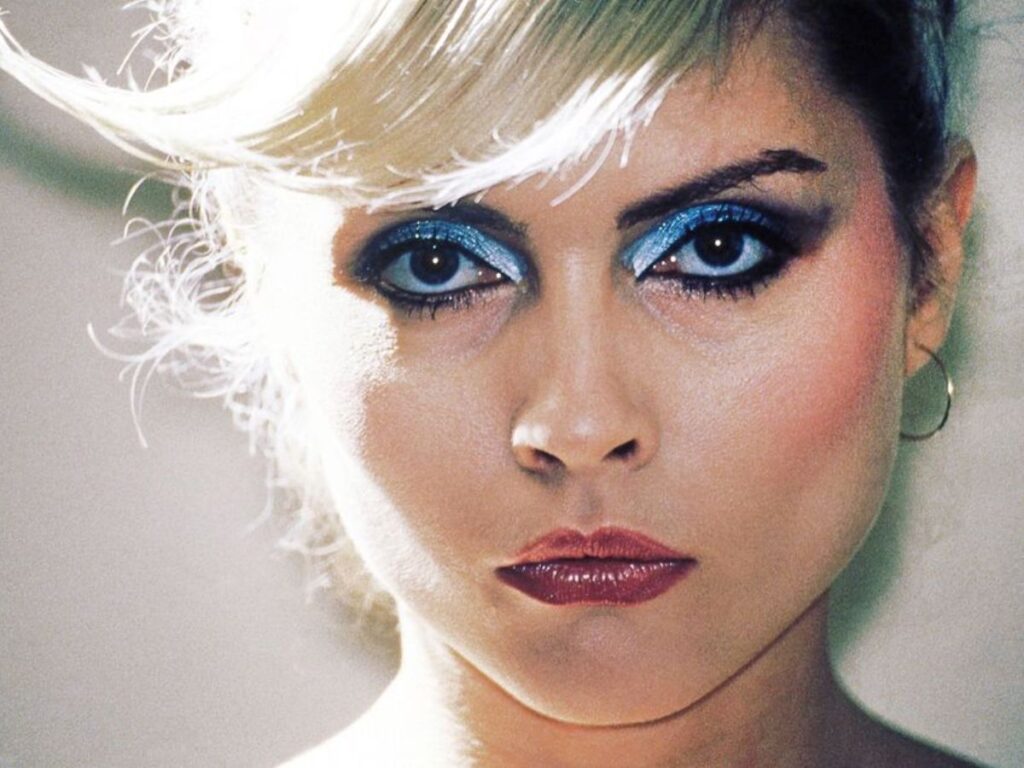Debbie Harry, the iconic frontwoman of Blondie, is celebrated not only for her trailblazing contributions to punk, new wave, and pop music but also for her profound appreciation of the artistry behind lyrics. A wordsmith herself, Harry has crafted some of music’s most memorable lines, from the infectious energy of “Call Me” to the haunting narrative of “Rapture.” Yet, her own inspirations extend far beyond her discography, rooted in an eclectic mix of genres, eras, and artistic influences.
Although Debbie Harry has not definitively stated her all-time favorite lyric, her reflections on music and lyrics over the years offer a compelling look into what she values most in songwriting. Through her interviews, autobiographical works, and curated playlists, we can explore the words and songs that have resonated deeply with her, providing a window into her creative psyche.
A Lyricist Who Values Storytelling
Debbie Harry’s own lyrics often center on storytelling and emotional nuance. From the rebellious undertones of “One Way or Another” to the dreamlike surrealism of “Heart of Glass,” her words paint vivid pictures while inviting listeners to interpret their deeper meanings. As an artist who blends personal experience with abstraction, it’s no surprise that Harry’s taste in lyrics leans toward those that evoke strong imagery or tell a compelling story.
In her autobiography, Face It, Harry writes about her love for lyrics that convey raw emotion, humor, or wit. This perspective aligns with her admiration for artists like David Bowie, Bob Dylan, and Leonard Cohen—songwriters known for their poetic brilliance and ability to distill human complexity into a few well-chosen lines.
Debbie Harry’s Musical Influences
To understand Harry’s approach to lyrics, it’s helpful to consider her musical influences. Harry grew up in the 1950s and 1960s, an era defined by the rise of rock ‘n’ roll, doo-wop, and soul. These genres, characterized by their lyrical directness and emotional intensity, undoubtedly shaped her early perceptions of songwriting.
Fats Domino: “Blueberry Hill”
One of the earliest songs to leave an impression on Harry was Fats Domino’s “Blueberry Hill.” Known for its nostalgic lyrics and smooth melody, the song is a classic of early rock ‘n’ roll. Harry has described it as the first song she ever loved, a testament to its enduring appeal. Its lyrics—“I found my thrill on Blueberry Hill”—capture a sense of longing and joy that resonates universally.
Bob Dylan: A Master Lyricist
Harry has frequently cited Bob Dylan as a significant influence on her artistry. Known for his evocative storytelling and groundbreaking lyricism, Dylan’s work redefined what song lyrics could achieve. Tracks like “Subterranean Homesick Blues” and “Like a Rolling Stone” embody a level of poetic depth that Harry has often aspired to in her own writing.
David Bowie: A Fusion of Word and Persona
David Bowie, another key influence, was a master of integrating his lyrics with his persona. Harry admired Bowie’s ability to weave enigmatic narratives into his songs, creating a sense of mystique. His lyrics often explored identity, alienation, and transformation—themes that also permeate Blondie’s music.
Debbie Harry’s Curated Favorites
Harry’s eclectic taste extends beyond her formative influences to a wide range of genres and artists. In various interviews and curated playlists, she has highlighted songs that she admires for their lyrical brilliance, emotional resonance, or sheer artistry.
Screamin’ Jay Hawkins: “I Put a Spell on You”
Harry has spoken highly of Screamin’ Jay Hawkins’ “I Put a Spell on You,” a song that blends theatricality with raw emotion. The lyrics, which convey a possessive kind of love, resonate through Hawkins’ powerful delivery. Harry’s appreciation for this track underscores her love for music that conveys drama and intensity.
Bizet: “Chanson d’avril”
In a departure from contemporary music, Harry has also expressed admiration for Bizet’s classical piece “Chanson d’avril.” While not a pop song, its poetic lyrics and melodic beauty reflect Harry’s wide-ranging musical sensibilities. The song’s focus on nature and renewal may appeal to her as a storyteller who values imagery and metaphor.
Patti Smith: A Kindred Spirit
As one of her peers in the punk and new wave scenes, Patti Smith’s lyrical prowess is something Harry has publicly admired. Smith’s ability to blend poetry with punk rock reflects a shared ethos between the two artists. Tracks like “Because the Night” or “Dancing Barefoot” showcase Smith’s talent for turning raw emotion into memorable lyrics.
The Lyrics Debbie Harry Values Most
While Debbie Harry hasn’t named a specific lyric as her favorite, her reflections on music and songwriting suggest several qualities that she values in lyrics:
1.Imagery and Metaphor: Harry gravitates toward lyrics that evoke vivid mental images or use metaphor to convey deeper meaning. This is evident in her own work, as well as in her admiration for artists like Leonard Cohen.
2.Emotional Honesty: Lyrics that capture raw emotion—whether joy, heartbreak, or rebellion—resonate with Harry. She appreciates songwriting that feels authentic and relatable.
3.Humor and Wit: Harry’s playful side shines through in songs like “Atomic” and “Sunday Girl.” It’s no surprise that she admires lyrics that balance seriousness with a sense of humor or cleverness.
4.Theatricality: From Screamin’ Jay Hawkins to David Bowie, Harry’s love for dramatic and performative lyrics is clear. She values lyrics that create an experience, pulling listeners into a story or moment.
Why Lyrics Matter to Debbie Harry
For Debbie Harry, lyrics are more than just words set to music—they are a form of storytelling and a vehicle for connection. In an era when music often prioritized style over substance, Blondie’s success was built on a foundation of clever, impactful lyrics. Harry’s ability to merge vulnerability with strength, humor with gravity, and intimacy with universal appeal is what makes her a true lyrical icon.
Moreover, her admiration for other lyricists reveals her humility and her ongoing quest to evolve as an artist. Whether she’s praising the narrative power of Bob Dylan or the theatrical brilliance of Screamin’ Jay Hawkins, Harry demonstrates a deep respect for the craft of songwriting.
Debbie Harry’s Enduring Influence
Even after decades in the industry, Debbie Harry continues to inspire new generations of artists and music lovers. Her lyrics remain as relevant today as when they were first written, serving as a testament to the power of words in shaping culture. By highlighting her favorite lyrics and the artists who influenced her, Harry invites listeners to explore the broader world of music and poetry, enriching their appreciation for the art form.
A Lyricist and a Fan
Debbie Harry’s journey as both a lyricist and a fan of great lyrics reflects her unique position in the music world. She is not only a creator of unforgettable lines but also a lover of words and their ability to move, inspire, and transform. While she may not have named a single favorite lyric, her reflections offer a wealth of insight into the artistry and emotion that make a lyric truly timeless.
For fans of Blondie and music enthusiasts alike, diving into Debbie Harry’s influences and curated favorites is an invitation to explore the vast landscape of lyrical brilliance—a journey that is as dynamic, eclectic, and inspiring as Harry herself.
No comments yet.








